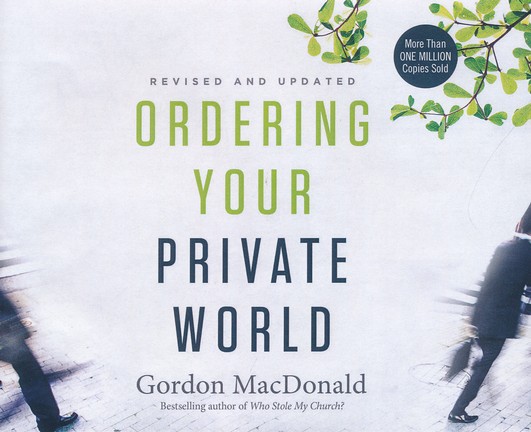As the COVID-19 pandemic has
waxed and now, hopefully, is beginning to wane, what was once just an unsettling
undercurrent in Western church life has come to a boil and is now threatening
to overflow into open conflict. Such conflict is already a reality in several congregations.
Various factions are forming over the issue of “reopening,” “regathering,” or whatever trendy term we want to use to describe the resumption of in-person Sunday morning worship services. And church people are everywhere on the spectrum regarding this issue. A few are calling other brothers and sisters who are not as cautious as they are unbelieving murderers. Many others wish to exercise a gentler caution. There are those who want to honor the governing authorities. But then there is the camp that does not feel there is much risk and wants to meet again as soon as possible. Still others want to obey God rather than man and meet regardless of any imposed guidelines. And then there are the few who are even crying persecution and are ready to take up arms to defend their rights (which, by the way, is not how the truly persecuted church has ever responded).
There are a lot of reasons behind the swirling emotions and rhetoric—nationalistic syncretism, consumer-driven ecclesiology, paranoid delusions, naked fear, cold logic, warm concern for others, to name a few. (Just ask the people at other spots on the spectrum, and they will be happy to tell you your motives.) But one of the factors that trouble me the most is the disturbing notion that many people see church as an event these days.
We tend to anachronistically read our context into the New Testament passages that talk about believers gathering, failing to note that more often than not, such gatherings took place in homes, not massive buildings with steeples, smoke machines, coffee bars, or witty sayings on their notice boards. This is not to say that massive, regular meetings of believers in buildings designed specifically for that purpose is unbiblical. But it is to say that such practices in such facilities are expedients and not a requirement of the faith.
The greatest example of this anachronistic hermeneutic is Hebrews 10:25. It ranges in translation from “Let us not give up meeting together” to “Not forsaking the assembly.” This is the prooftext that defends the notion that we must resume Sunday morning worship services by any means possible as quickly as we can. We are disobeying, or, at the least, disappointing God if we do not meet in our buildings on Sunday mornings.
Such a reading makes the twin errors of failing to understand the occasion of Hebrews and reading our context into it. The writer of Hebrews addressed his letter to Jews who had turned to Christ but who were now on the verge of turning back away from Jesus due to intense persecution on the part of their fellow non-Christian Jews-some of them their own flesh and blood! To make matters worse, they were being excommunicated from their local synagogues. The synagogue was much more than just a place of worship; it was the cultural community center of Jewish people in whatever place they found themselves. These Jewish Christians had taken to avoiding meeting with other Jewish Christians out of fear of being discovered and thrown out of their ethnic communities and family households.
Also, note the reason the writer issues the mandate not to give up meeting together. They are to gather to encourage one another, not to placate God or earn his favor. We must also remember that he was not writing during a pandemic in which all large gatherings were prohibited on the basis of preserving life. And he was not writing in an age when technology such as livestreaming and videoconferencing was not only possible but easily accessible by most of his readership.
When we casually read Hebrews 10:25 through our eyes rather than the original audience’s eyes, we picture people finding more important things to do-like sleeping in, going to the lake, or heading to a football game-rather than showing up at a large public worship center in a country where it is free to do so and family members aren’t likely to disown them if they do.
To the writer of Hebrews (and to the rest of the New Testament writers), the church was a people he encouraged to stay together, stay focused on Jesus, and to stay on mission. It was not an event he was trying to promote.
I get the appeal of making church an event rather than a community of people who trust in Jesus and who are trying to live out his mission. When we make church an event, we can measure our fidelity to the cause much more accurately and with far less personal effort. If I’m there “every time the doors are open,” I’m a good Christian. When we make church an event, it is easier to judge who is in and who is out. When we make church an event, those of us in ministry can count success by the numbers of butts in pews rather than the depth of the people we are discipling to make more disciples. And when we make church an event, we can compartmentalize our faith, limiting it to an hour each week on Sunday (or three hours per week, counting Sunday school and our small group) and keep the rest of our day-to-day life under our own will and direction.
If that is the mindset, I can see why people are getting antsy as the doors to our public houses of worship remain closed during the pandemic.
Church was never intended to be an event. Church has always been a community of people who trust in Jesus and who seek to live out his mission.
I will be the first one to say that there is no substitute for face-to-face interaction with other believers. Doing ministry behind a screen has some serious limitations. I believe Sunday morning worship gatherings ought to be a little picture of what heaven will be like—God’s people gathered in true community in his presence, enjoying the eternal wedding feast of the Lamb, and giving him praise and honor as they celebrate life and intimacy with one another and with God. It’s a little hard to look at two dozen little Zoom feeds on my screen and get that kind of foreshadowing, or to watch a livestream on my phone and feel like I’m part of something much bigger than myself. But right now, it will do. It’s not ideal, but Sunday morning gatherings are not ideal, either. They are to serve as a foreshadowing of the ideal—heaven.
If the argument is being made to re-whatever as soon as possible because of bad hermeneutics and faulty theology, I have just one thing to say.
Stop.
Jesus didn't die so we would gather in big buildings on Sunday mornings. He died so that we could be together with him and with one another for all eternity.
Grace and peace.
Photo credit: "Admit One" by Quack712 is licensed under CC BY-NC-ND 2.0













